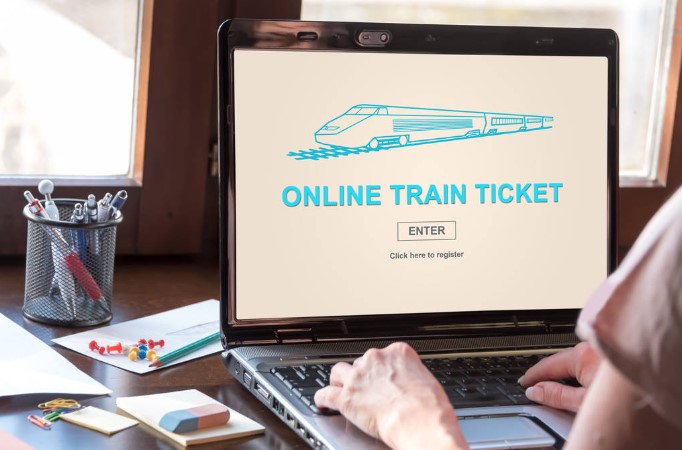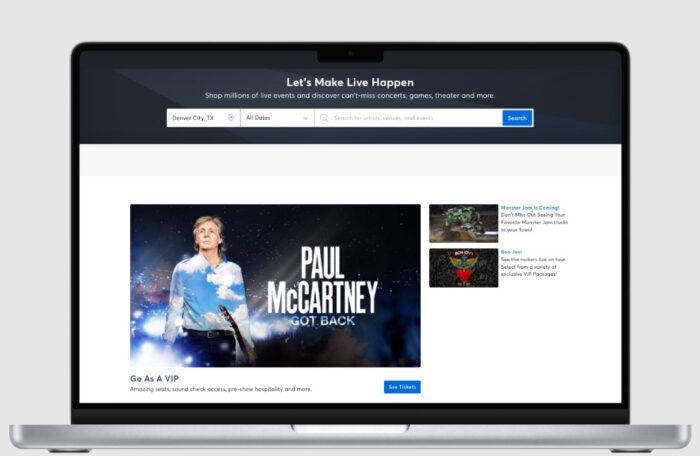
Online ticket-selling platforms provide consumers with an easy and convenient way to purchase tickets for events such as concerts, theatre shows, and sporting events. These platforms offer a variety of features to help customers find the best deals for their desired event.
By researching online ticket-selling platforms, customers can save time and money while finding the perfect event tickets.
When researching online ticket-selling platforms, it’s important to consider factors such as pricing, customer service support, payment options, and delivery options. Consumers should also be aware of any hidden fees or charges associated with purchasing tickets online.
For example, some websites may charge extra fees for processing or shipping costs that may not be included in the advertised prices on their website. It’s important to read all terms and conditions before purchasing to avoid any surprises or unexpected costs after completing the transaction.
In addition to researching pricing and fees associated with different ticket sellers, it is important to consider customer reviews when selecting an online ticket seller platform.
Many websites have customer reviews displayed prominently on their homepage so potential buyers can obtain more information about past experiences from other users who have used their services before making a purchase decision of their own.
Select a Platform for Selling Tickets

Are you looking for a platform for selling tickets online for your next event? It can be a challenge to select the right ticketing platform that meets your needs. You want to make sure that you have a platform that is easy to use, and secure, and offers features such as promotional codes and discounts.
To help you in this process, here’s an overview of some of the most popular ticketing platforms available today.
Eventbrite
Eventbrite is one of the most widely used ticketing platforms for events of all sizes. It provides a simple setup with no coding required and is also highly customizable with options like customized branding, advanced analytics tools, and integration with payment processing systems like PayPal or Stripe.
Additionally, it offers many features such as free mobile apps for iOS and Android devices, real-time check-in capabilities, customer service support 24/7 via chat or email plus much more!
Ticketmaster
Ticketmaster is another popular choice when it comes to selling tickets online. It’s been around since 1976 so they’ve had plenty of time to refine its product offering making it very user-friendly for both organizers and customers alike.
Design and Create the Event Page on the Platform

Creating an event page on a platform can be a daunting task, especially if you’ve never done it before. But with the right tools and guidance, you can design and create an event page that will attract potential attendees and provide valuable information about your event.
The first step in designing an event page is to decide on the layout. This means deciding what elements you want to include in your pages such as photos, videos, text, or even a countdown timer for when registration opens up. You should also decide what type of font and colors you want to use for each element so that it looks professional and inviting.
Once you have decided upon the layout of your event page, it’s time to start adding content. When writing content for your event page make sure that it is clear and concise; potential attendees should be able to easily find out all of the important information they need such as date/time/location details as well as who is speaking or performing at the event etc. If there are any additional features like ticketing options or ways to contact organizers then make sure they are clearly outlined too!
Promote Your Event to Reach Potential Customers
Organizing an event is a great way to build relationships with potential customers and drive business growth. But, it’s important to make sure you’re doing all you can to promote your event so that it reaches the people who will benefit from attending.
Here are some tips for getting the word out about your upcoming event and reaching potential customers:
Utilize social media
Social media is one of the most effective ways to reach new audiences and promote an upcoming event. Create accounts on popular platforms like Facebook, Instagram, Twitter, LinkedIn, etc., and then use these platforms to spread awareness about your event.
Include clear details about what attendees can expect at the event along with engaging visuals or videos that will draw attention. You may also want to consider running paid ads on social media to get even more visibility for your event.
Use email marketing
Email marketing is another great way of promoting events as it allows you directly target interested individuals or groups who have already expressed interest in learning more information or attending your events by signing up on a website or newsletter list.
Prepare to Sell Tickets and Collect Payment

If you’re organizing an event, one of the most important tasks is to prepare for selling tickets and collecting payment. In this digital age, there are numerous options when it comes to ticketing platforms and collecting payments.
Here’s how you can get started:
Choose a Ticketing Platform
First, you need to decide which ticketing platform will best suit your needs. There are many different platforms available ranging from free services such as Eventbrite or paid services like Ticketmaster or StubHub. Each platform offers a variety of features including digital ticketing, online payment processing, and promotions tools so make sure to do your research before making a decision.
Set Up Your Payment Options
Once you’ve chosen a platform, the next step is to set up payment options that will allow customers to purchase tickets online with ease and convenience.
Common payment methods include credit cards, PayPal, or other online wallets like Apple Pay or Google Pay if available on the chosen ticketing platform.
Establish Pricing Structure
It’s important to establish a pricing structure ahead of time so customers know what they are paying for in advance – whether it be early bird prices for regular tickets or discounts for group bookings etc.
Monitor Sales Progress and Track Ticket Redemption

Monitoring sales progress and tracking ticket redemption is an important part of any business. It allows you to keep track of how well your products or services are selling, and it helps you ensure that customers who have purchased tickets for events or services will be able to redeem them with ease.
By monitoring sales progress and tracking ticket redemption, businesses can make sure they are providing the best customer service possible while also ensuring that their profits stay on track.
Sales progress can be monitored in a variety of ways, including looking at sales reports or tracking individual customer purchases. Tracking customer purchases is especially useful if you run promotions or discounts, as it allows you to determine how effective those strategies were at driving sales.
Additionally, monitoring customer feedback through surveys or reviews can help provide insight into what customers think about your products and services so that improvements can be made if necessary.
Tracking ticket redemption is also essential for businesses that offer tickets for events or services – such as theatres, concerts, sports venues, museums etc. Knowing when customers have redeemed their tickets will ensure that everyone attending has paid for the event/service and prevent any fraudulent activities from taking place.









